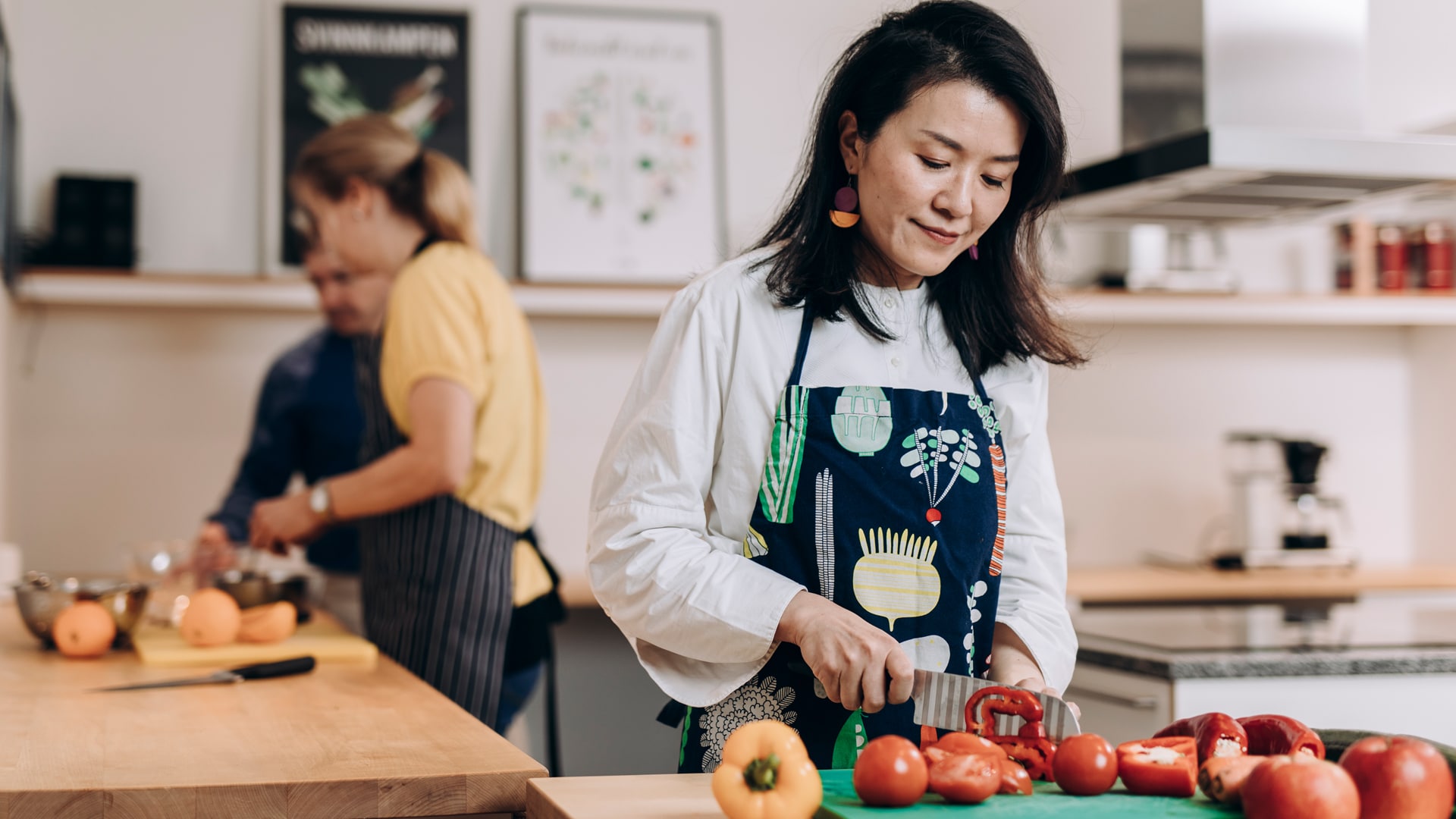
Good nutrition
Good nutrition is particularly important if you have cancer, as it will help you stay as fit as possible. Cancer treatments can affect how your body tolerates certain foods and can use nutrients.
Change your diet during treatments
Eating well during your cancer treatment will help you:
- Feel better
- Maintain your muscles and energy levels
- Keep your weight under control
- Tolerate the side effects of your treatment better.
- Reduce your risk of infection.
- Heal and recover faster.
During cancer treatment, you may need to change your diet to prevent muscle loss and to withstand the effects of cancer and its treatments. This may include eating foods that are not usually recommended. For example, you may need protein-rich and calorie-dense foods to maintain your weight or cool foods such as ice cream or milkshakes, because sores in your mouth and throat make eating difficult. The type of cancer, your treatment and any side effects will affect what is best for you to eat.
Cancer affects diet and eating habits in many ways.
Cancer affects diet and eating habits in many ways. The disease itself can cause weight loss, loss of appetite or other eating problems. Surgery can affect swallowing or digestive function. Radiotherapy and chemotherapy can cause nausea, diarrhoea, loss of appetite and changes in taste and smell. In addition, mood swings or depression associated with the disease can affect appetite, often leading to reduced eating and weight loss. Some people with cancer eat too little, and lack of food can impair healing and recovery.
For some cancer patients, the opposite may happen during treatment: during hormone or cortisone treatment, appetite increases and weight increases. If physical activity is reduced, you may gain weight more easily than usual.
You should not lose weight during treatment, but you should follow a healthy diet. Weight loss should be avoided, as weight is lost from the muscles during treatment, further reducing your overall fitness.
You should discuss your diet with your doctor, nurse or dietician. Nursing staff will refer patients with major problems with weight loss to a dietician.
Avoid during treatment
- Cured and cold-smoked fish
- Vacuum-packed fish preparations
- Raw fish and roe
- Home-made cheeses
- Unpasteurised milk products without heating
Avoid alcohol
Avoid alcohol during treatment. Under no circumstances should alcohol be consumed on the days of treatment and preferably not at any other time during the treatment period. Anticoagulants are powerful poisons that affect bone marrow function. Alcohol destroys cells.
Vitamins and natural products
Avoid vitamin pills and natural products. If you want to use them, tell your doctor. For example, vitamins should generally not be taken a few days before or a few days after treatment. The contents of natural products are generally not known precisely and should be avoided as they put extra strain on the liver.
Hygiene
During cancer treatment, resistance is reduced. It is therefore important to try to avoid food-borne infections. Always wash your hands before handling or eating food. Always cook food until it is fully cooked and if you are using a microwave, heat it to a high temperature. Wash and rinse salads, vegetables and fruit well and peel them if necessary. Heat foreign frozen berries thoroughly before using.
Oral care
During cancer treatment, it is important to take good care of your mouth and teeth. Bacteria can get into the bloodstream through the gums, and a dry mouth increases the risk of tooth decay.
Brush your teeth twice a day with a soft toothbrush. Gently clean the spaces between your teeth to avoid damaging your gums. Moisten your mouth with a humectant mouthwash every couple of hours if you cannot eat and drink normally or your mouth feels dry. At night, you can put cooking oil on your mucous membranes.
If you have a sore mouth, you can get a prescription for a mouth spray to numb your mouth.
You might also be interested

Taking care of yourself
Taking care of daily routines is part of self-care. Taking care of yourself during your illness is the most important way you can contribute to your recovery.
Read article
Exercise and cancer
Research shows that there is strong evidence that exercise has many benefits for people with cancer.
Read article
Good nutrition
Good nutrition is particularly important if you have cancer, as it will help you stay as fit as possible.
Read article